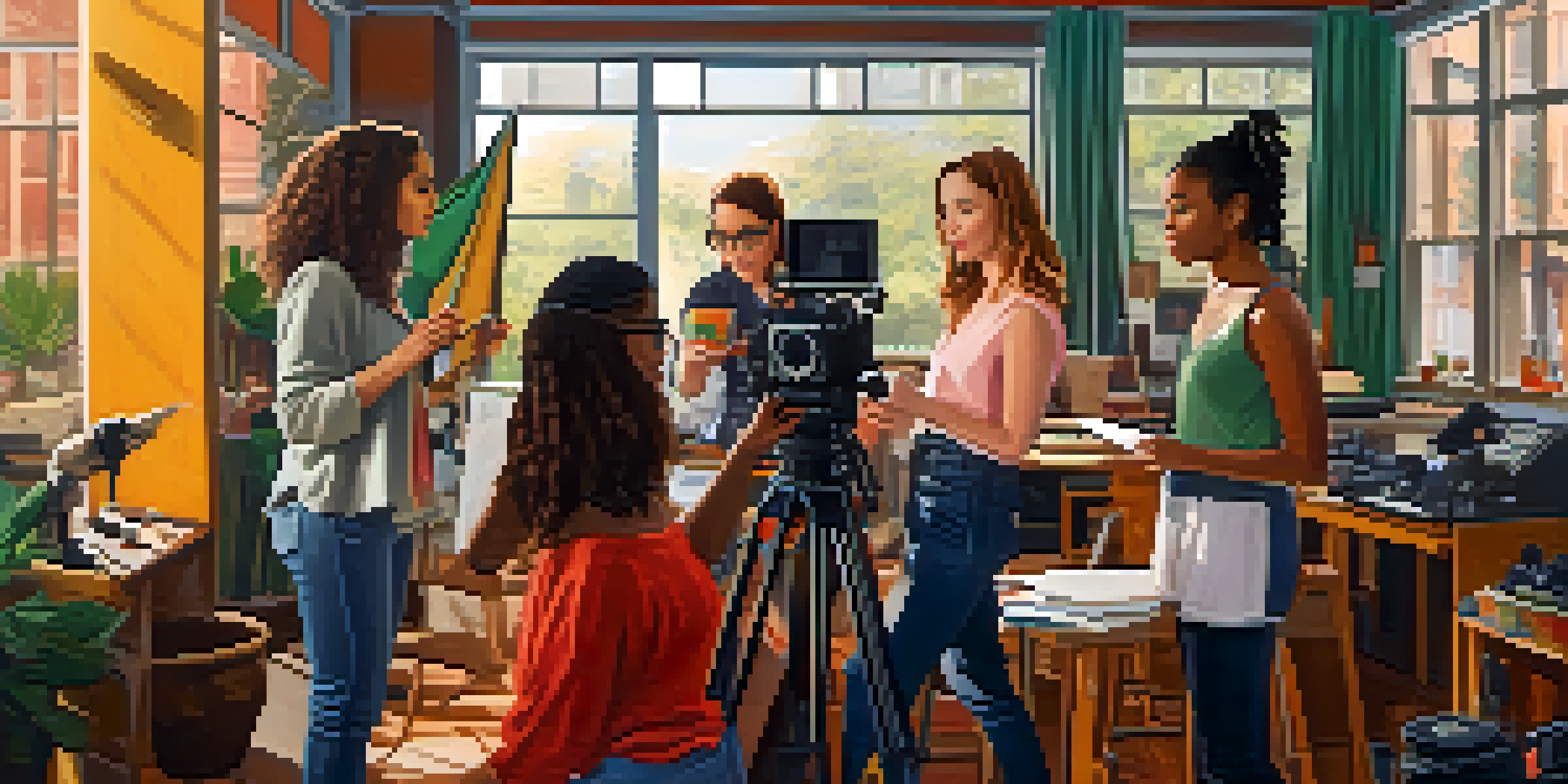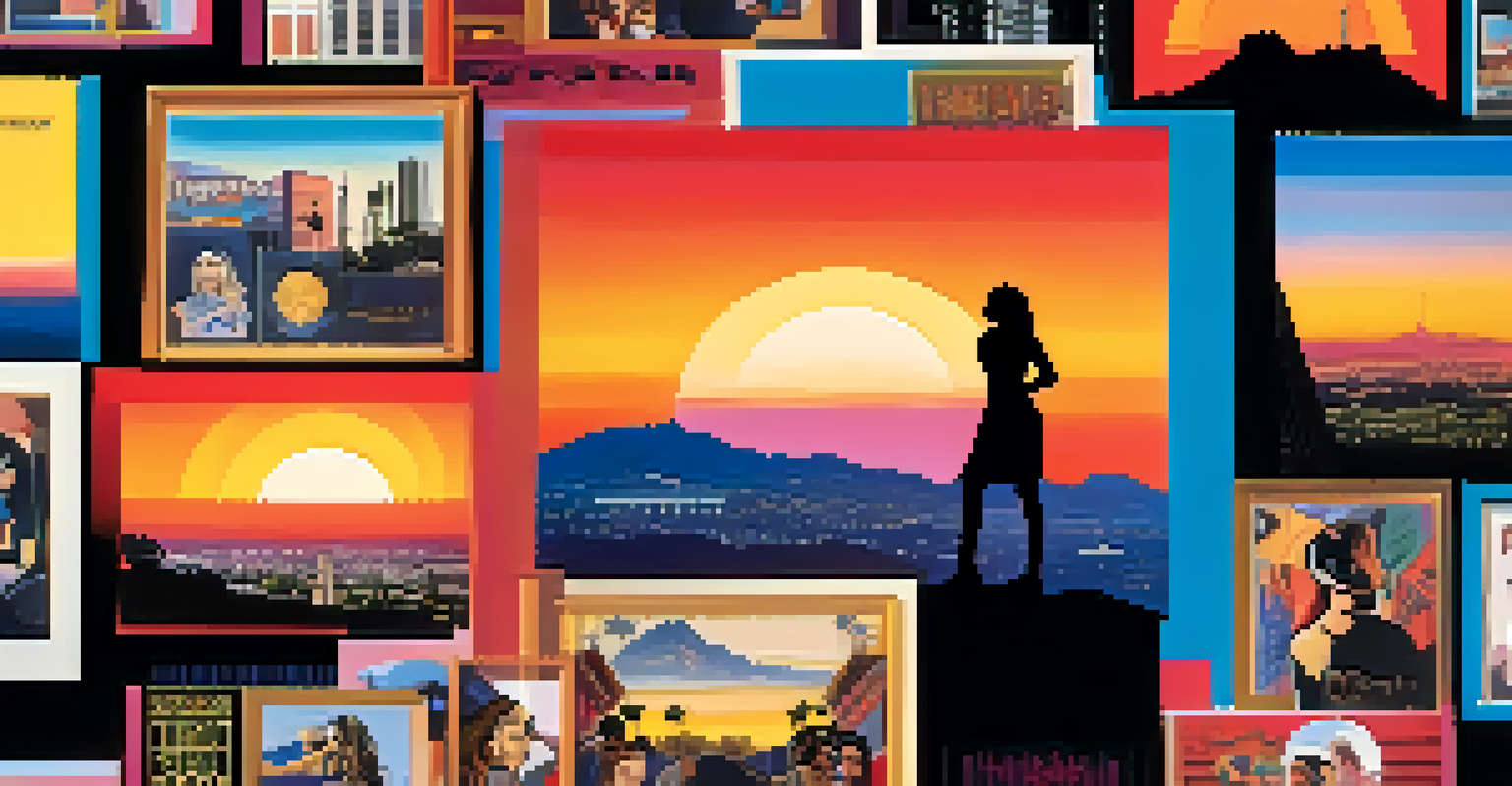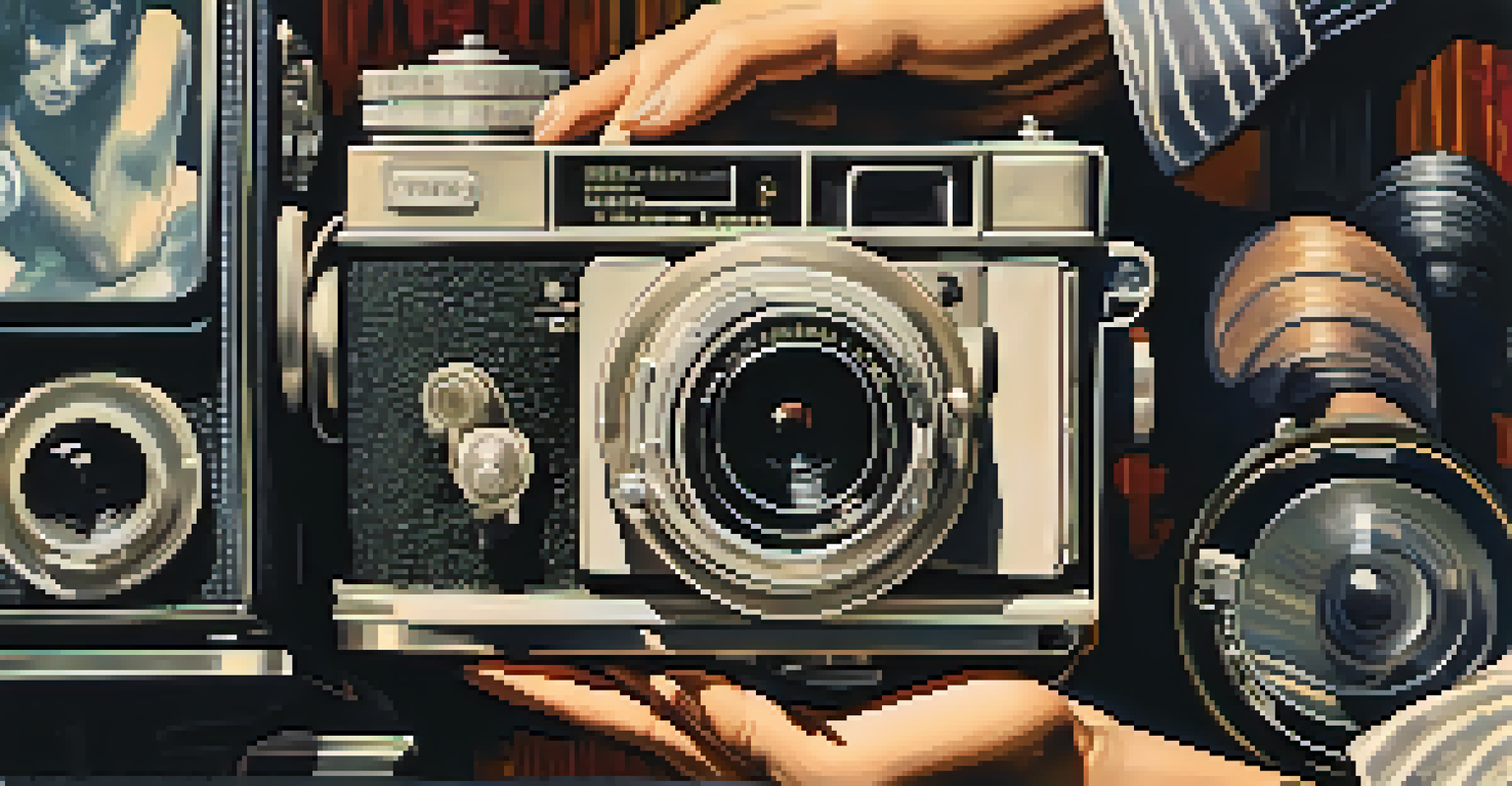Hollywood's Feminist Movement: Progress and Backlash

The Origins of Feminism in Hollywood
The roots of feminism in Hollywood can be traced back to the early 20th century, when women began to demand more representation and rights in a male-dominated industry. Pioneers like Mary Pickford and Dorothy Arzner broke barriers, paving the way for future generations. These early feminists laid the groundwork for a movement that would grow in strength and visibility over the decades.
Feminism is the radical notion that women are human beings.
As the feminist waves surged through the 1960s and 70s, Hollywood saw an influx of films that challenged traditional gender roles. Movies like 'Thelma & Louise' and '9 to 5' highlighted women's struggles and triumphs in a patriarchal society. These films resonated with audiences, proving that stories centered on women's experiences could be both commercially successful and culturally significant.
However, the journey wasn't without its challenges. Many filmmakers faced resistance from studio executives who were hesitant to invest in female-driven narratives. Despite this, the seeds of change had been planted, setting the stage for a more robust feminist movement in the years to come.
The Impact of the #MeToo Movement
The #MeToo movement, which gained prominence in 2017, served as a catalyst for change in Hollywood. It empowered countless women to share their stories of harassment and abuse, creating a seismic shift in the industry. High-profile cases exposed systemic issues, forcing studios and networks to reevaluate their practices and policies surrounding workplace conduct.

One of the most significant outcomes of the #MeToo movement was the increased visibility of women's voices in Hollywood. Female directors, writers, and producers began to receive more opportunities, leading to a richer tapestry of stories being told. This newfound focus on women's narratives not only diversified the industry but also resonated with audiences eager for authentic representation.
Feminism's Hollywood Origins
The roots of feminism in Hollywood began in the early 20th century, with pioneers like Mary Pickford advocating for representation in a male-dominated industry.
Yet, the movement sparked backlash as well. Some critics argued that the swift consequences faced by accused individuals jeopardized due process, raising concerns about fairness. This debate highlighted the complexities and nuances of addressing gender-based issues in a way that is just and equitable for all involved.
Representation Behind the Camera
While strides have been made in front of the camera, representation behind the scenes remains a crucial issue in Hollywood. The lack of female directors and writers can limit the authenticity of stories told about women. Organizations like Women in Film are working tirelessly to promote female talent and influence in the industry, emphasizing that diverse voices are essential for genuine representation.
The most courageous act is still to think for yourself. Aloud.
Data from various studies highlights the stark gender disparity in filmmaking roles. Despite progress, women still comprise a small percentage of directors and producers in major studios. This imbalance not only affects the types of stories being told but also impacts the overall culture of the industry, perpetuating outdated stereotypes.
Encouragingly, initiatives aimed at supporting women in film are beginning to gain traction. Programs that provide mentorship, funding, and networking opportunities are empowering women to take on leadership roles. As more women step into these positions, the hope is that Hollywood will continue to evolve towards a more inclusive future.
The Role of Social Media in Feminism
Social media has played a transformative role in amplifying feminist voices in Hollywood. Platforms like Twitter and Instagram have allowed women to share their experiences, connect with one another, and mobilize for change. This digital landscape has become a powerful tool for advocacy, showcasing the strength of collective action.
Through hashtags and online campaigns, issues like pay inequality and representation have gained widespread attention. Audiences are now more informed and engaged, holding studios accountable for their choices. This shift has led to increased pressure on industry leaders to prioritize diversity and inclusion in their projects.
Impact of #MeToo in Hollywood
The #MeToo movement empowered women to share their stories, leading to increased visibility and opportunities for female creatives in the industry.
However, social media is a double-edged sword. The same platforms that empower can also become spaces for harassment and backlash against those who speak out. Navigating these challenges requires resilience and solidarity among women in the industry, demonstrating that the fight for equality is ongoing.
Challenges Facing Women of Color
While the feminist movement in Hollywood has made significant strides, women of color face unique challenges that must be addressed. Historically, their stories have been sidelined, and their contributions often overlooked. This lack of representation not only affects visibility but also perpetuates stereotypes that can be damaging to their identities and careers.
Films and shows featuring women of color are frequently subject to scrutiny, and the pressure to represent their communities authentically can be overwhelming. However, projects like 'Black Panther' and 'Crazy Rich Asians' have showcased the power of diverse storytelling and demonstrated the commercial viability of these narratives. Such successes highlight the importance of inclusivity in creating relatable and impactful content.
As advocacy for women of color continues to grow, organizations are emerging to support their development in the industry. Initiatives aimed at mentorship and funding for filmmakers of color are vital in creating pathways for success. By amplifying these voices, Hollywood can move towards a more equitable landscape that celebrates all women.
The Future of Feminism in Hollywood
Looking ahead, the future of feminism in Hollywood holds both promise and uncertainty. As the industry becomes more aware of the need for diverse narratives, there's an opportunity for growth and innovation. Emerging filmmakers and storytellers are eager to challenge norms and reshape the portrayal of women on screen.
However, the fight for equality is far from over. Ongoing advocacy is essential to ensure that progress is sustained and that women's voices are not relegated to the background once again. Industry stakeholders must remain vigilant and committed to creating an environment where all individuals, regardless of gender or background, can thrive.
Challenges for Women of Color
Women of color in Hollywood face unique challenges, as their stories are often overlooked, but successful films highlight the importance of inclusive representation.
The feminist movement in Hollywood is a dynamic force that reflects broader societal changes. As audiences demand more authentic representation, there's a collective responsibility to push boundaries and support diverse storytelling. The evolution of this movement will undoubtedly shape the future of film and television for generations to come.
Celebrating Achievements and Ongoing Struggles
As we reflect on the feminist movement in Hollywood, it's important to celebrate the achievements made thus far. From increased representation to groundbreaking films that challenge societal norms, the progress is undeniable. These milestones serve as a reminder of the resilience and determination of the women who fought for change.
Yet, acknowledging these successes doesn’t mean overlooking the ongoing struggles. Issues like pay disparity, harassment, and lack of representation continue to persist, highlighting the work that still lies ahead. Recognizing these challenges is crucial in maintaining momentum and advocating for lasting change.

Ultimately, the journey of feminism in Hollywood is a shared one, requiring the support and commitment of individuals from all walks of life. By standing together and amplifying marginalized voices, we can create an industry that reflects the richness of human experience, celebrating every story worth telling.